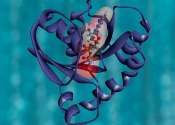Viruses help combat antibiotic-resistant bacteria
More and more bacteria are becoming resistant to antibiotics. Bacteriophages are one alternative in the fight against bacteria. These viruses attack very particular bacteria in a highly specific way. Now a Munich research ...









